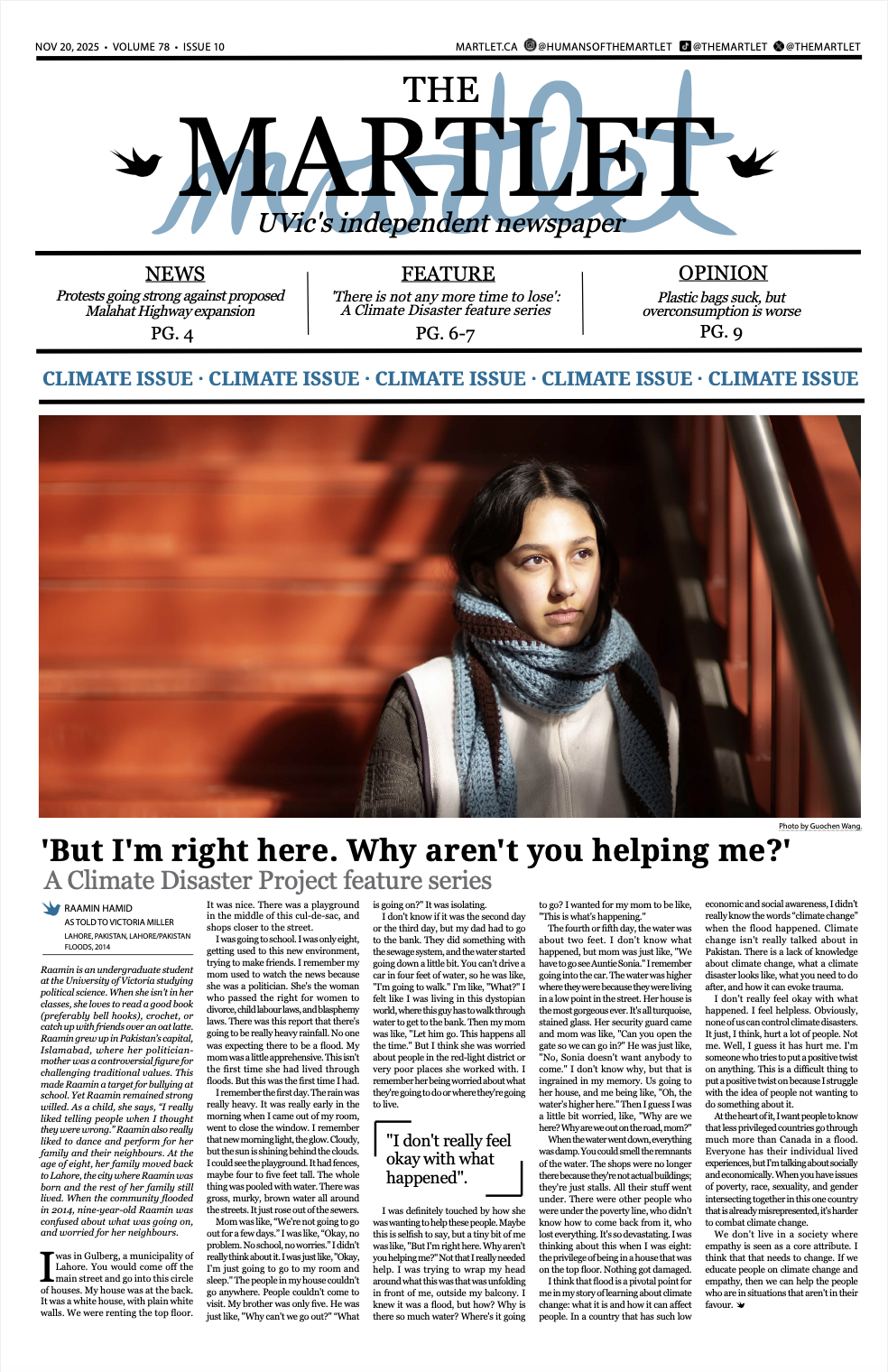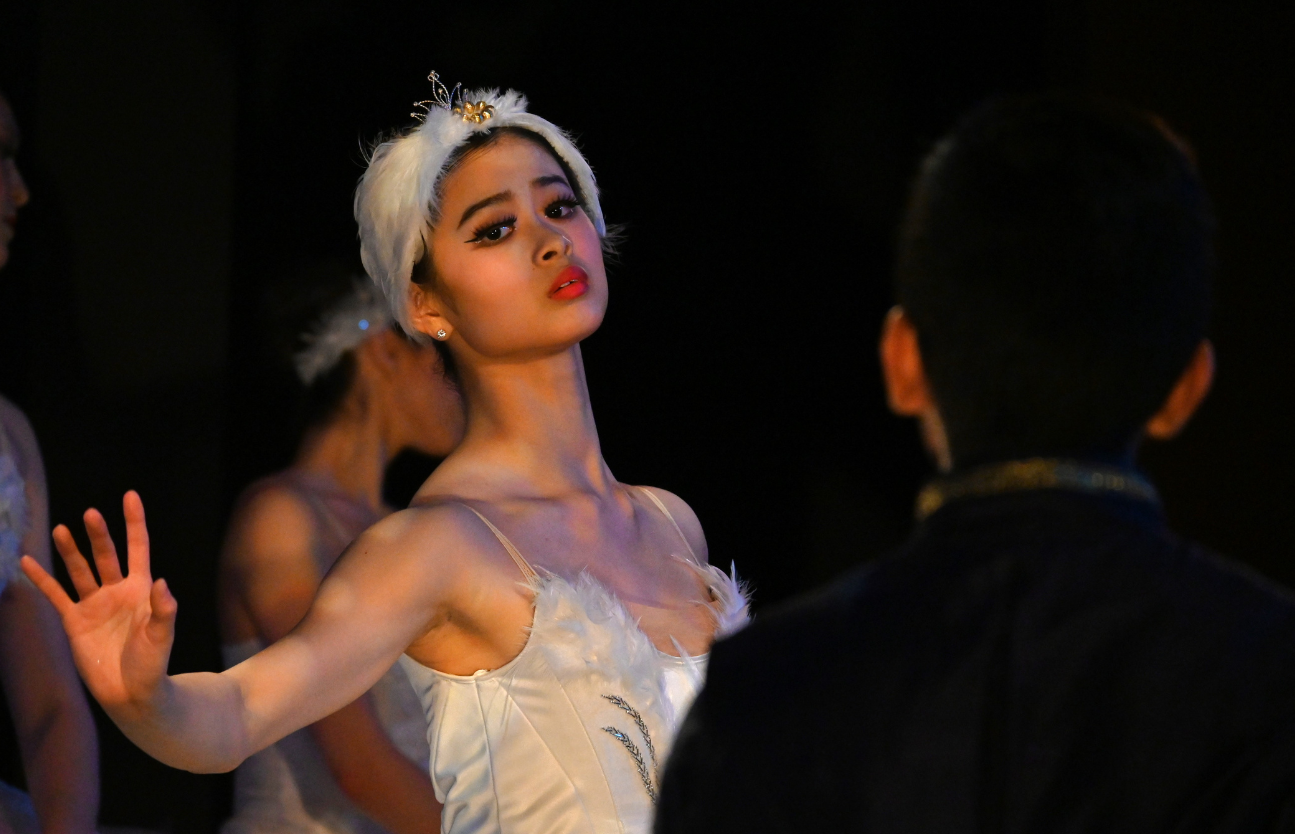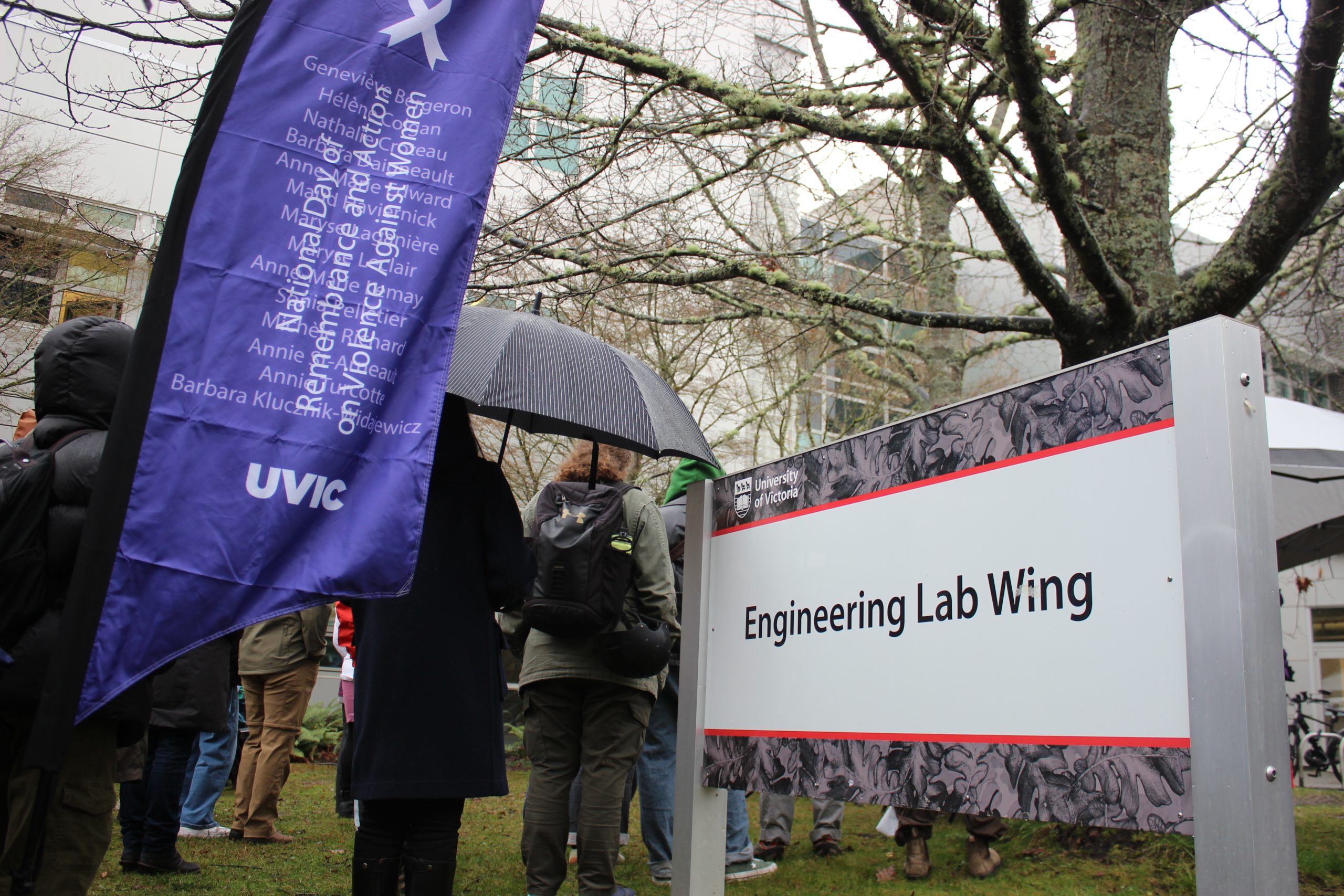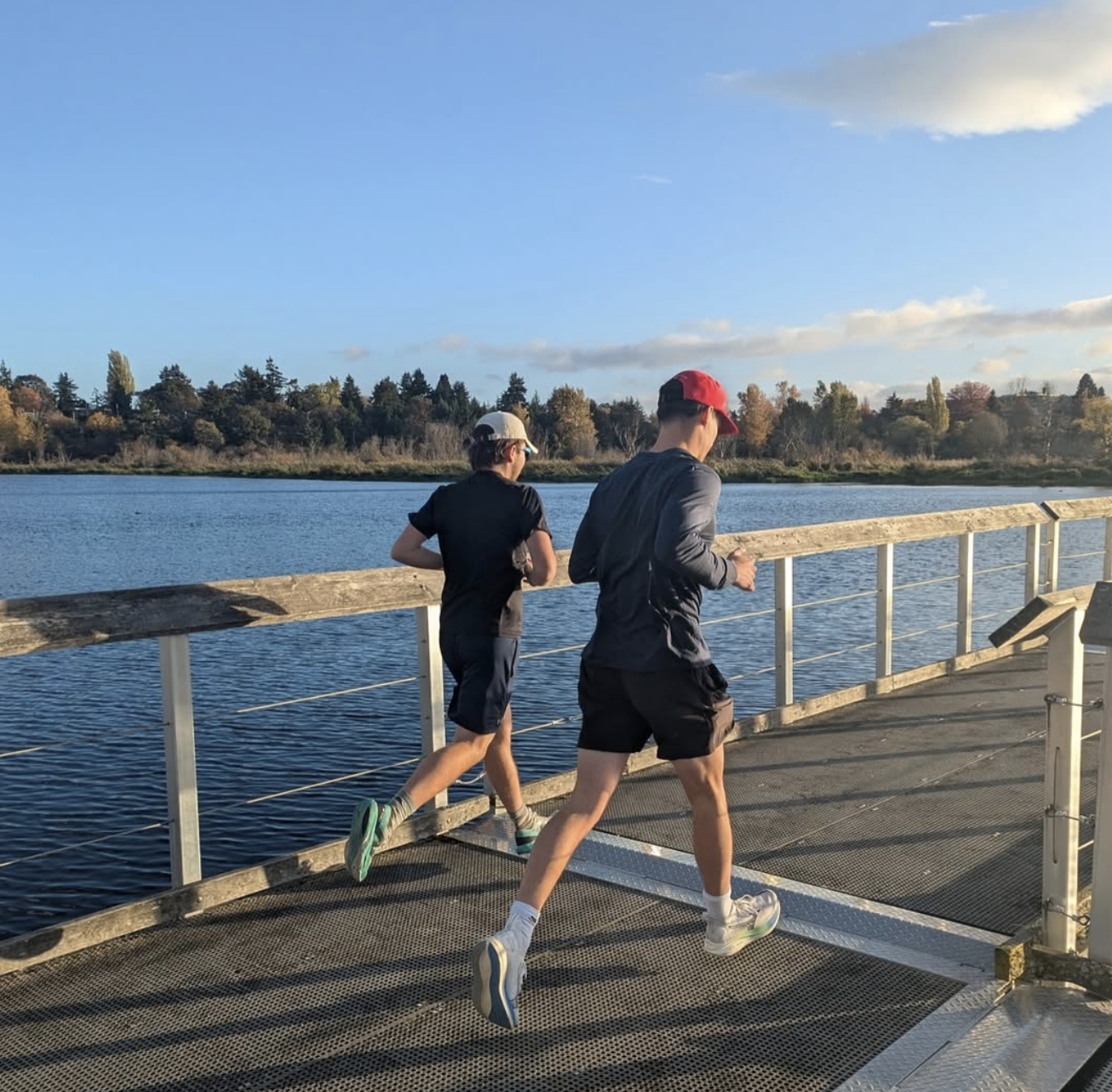In conversation with University President Kevin Hall
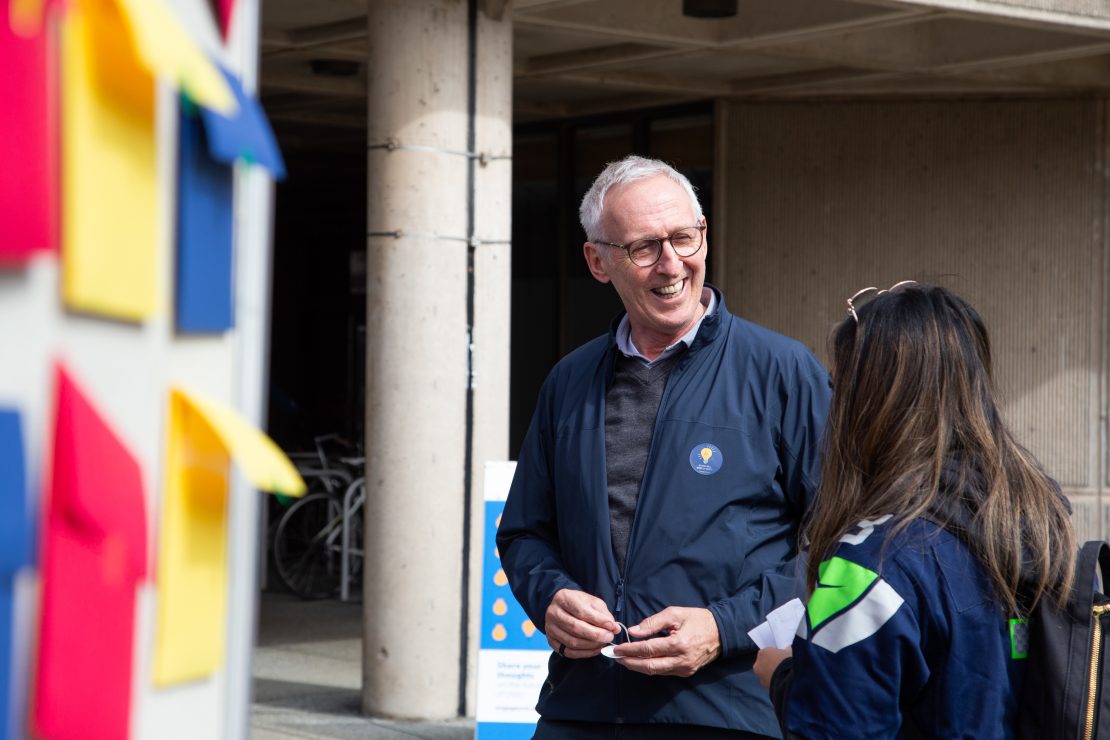
Photo provided by UVic.
Kevin Hall, the university president of UVic, has lived a life full of achievements. From gaining his PhD in civil engineering to having leadership roles at other institutions like the University of Guelph and the University of Newcastle, there is no doubt that his resume is stacked.
Despite his numerous achievements, he never would have guessed that he would become a university president. Regardless, his life and career set him up like a perfect storm to take the role of university president at UVic, and he was officially inaugurated in November of 2020.
Drawn to the university for its position on sustainability, its Maclean’s rankings, its goals towards reconciliation, and Victoria’s weather, Hall decided that UVic would be the place to “try and do some more good things.”
Now halfway into his five-year term, Hall agreed to sit down with the Martlet to chat about his role at UVic, student perspectives, and, well, himself, to help UVic students gain a better understanding of who he is.
This interview has been edited for clarity and brevity.
Are there any values that you’ve established here at UVic or accomplishments that you’ve achieved that you are most proud of?
I’ll give you three. The first one is bringing a United Nations training centre to Victoria; there’s just 30 of them in the world. I’m also really proud that we’ve created a Vice President Indigenous. That didn’t exist when I came here. And so we were one of the first universities in this country to establish that position, and it’s made such a huge difference with respect to our commitment and our plan for our work that we have to do in reconsidering reconciliation and decolonization … [Lastly], I think we’ve really become more transparent and more open in the last two and a half years. Our leaders are out on campus. We do go to lots of events. I do try to meet students — I really do … My goal is to meet 10 students [every day]. I’ll be the irritating person that comes up and asks them: ‘Where are you from?’ ‘What are you studying?’ ‘How are you enjoying the courses?’ ‘What’s the food like?’ All that stuff, just to get a sense of how students feel.
When you go out and meet students, do they know who you are?
Some do, and some don’t. I would say compared to when I first came two and a half years ago, a lot more do now.
As university president, what is your main role in the ecosystem of our university?
My job is to assure the government that we are managing the university well, that we are fiscally responsible, and that we are responding to the government’s mandate that they give us every year … I always tell people my big role is that I’m a cheerleader. I’m promoting the university. I’m telling the community about all the good things that are going on. And I’m like a matchmaker. I’m connecting businesses to researchers on campus or I’m connecting businesses to our co-op office, so they can hire co-op students. I’m trying to pull people together.
Could you walk me through what you do on a typical work day?
Every day is different. Sometimes there’s fires to be put out, issues that are really hot topics, and they may be anything from a student issue, faculty staff issue, or a government issue.
We have a lot of governance at the university because it’s a big institution. It’s a $700 million business that needs to keep running. I have an executive council, which is all the vice presidents and myself. We deal with a whole host of issues, we meet for half a day a week. Then we have the Senate, which is our academic governing body for the university, and that meets once a month. We have the Board of Governors, which is our B.C. government-appointed entity that we all report to. They’re the highest level of governance and it takes time getting things ready for them.
There’s my strolls around campus to talk to students.
And then I’ve been doing a little bit of work trying to connect the university globally. We’ve been a very quiet university internationally in the past while, and so we’re trying to connect and reconnect globally.
Then there’s lots of what I call schmoozing. There’s dinners with people, there’s meeting donors, potential donors, going to alumni events. So it’s a whole variety of things, which makes the job really cool.
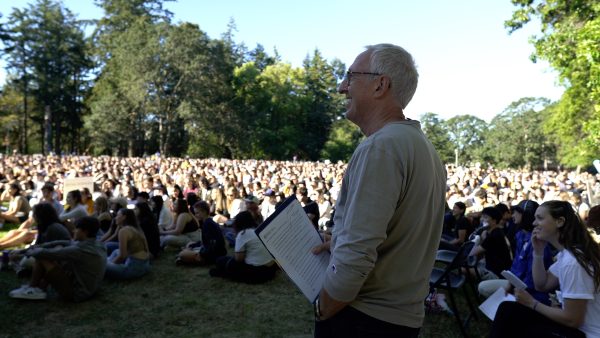
Photo provided by UVic.
After talking with students, I’ve found that they mainly view your role as someone that they see at convocation or they get emails from every once in a while. Do you have a comment for those views?
I guess I can see where that comes from. You can imagine, [with] 20 000 students, you obviously can’t go out and meet them all. But I think that’s changing a little bit. I’ve continued to ask for more opportunities to speak with students and to be active at student events during orientation week in particular. Walking around campus [has also been] great. But I’d love for students to give me some suggestions on how to make this role more present, other than just at graduation when I sit on the stage.
I’ve noticed that you are a patron of the arts, what kind of art galleries or concerts would students most likely see you at?
Music wise, I have really wide tastes. The only thing I wouldn’t go and listen to is country. But students might see me at Philips Backyard where I was last year, or they might see me at the opera or the symphony, or I went to the reggae and ska festival. So little bit of everything.
I played guitar as a kid and piano. My mom taught me piano, not classic piano. She just played by ear. And then when I was in my 30s, I actually went and [took classes at a] conservatory … I [also] used to play in a band.
What was the name of your band?
Oh, there were a whole bunch of names. The last one was called Ted, and don’t ask me why! Well, you can ask me why, but I won’t tell you. That was back in — gosh, I was trying to think of the timeframe there — that would have been the late 70s.
What is the biggest challenge that you think students are facing here at UVic?
Coming out of the pandemic, I think there are still and will continue to be issues around mental health and wellness. And I think also, because it’s okay to admit that today, we just absolutely have to keep focusing on that. And a lot of that is driven by our other problems, which are housing, housing insecurity, lack of affordable housing. And we’re really trying to work on that as an institution to try to help solve part of that problem. Food security is another big issue … Fear [and] anxiety over future climate. Things like that are on a lot of students’ minds, which is why we’ve got to be an important part of finding solutions to the climate crisis that we have.
Is there any piece of advice that you have for current and future UVic students who might be doubting their current chosen path?
First of all, you’ve got to be passionate about what you do. So if what you’re doing doesn’t get you excited, then you should think about changing it. Never go into a program because your mom or dad did, or your cousin did. Do it because you’ve got a passion for it. So I think follow your passion.
The second piece of advice is, don’t be afraid to think about changing what you’re doing when you find out what your passion is, if you don’t know what it is right now. At the end of the day, you’ve got to get up and go to work, and you’ve got to enjoy what you do. Because if you don’t, it can be a long miserable life. Find what makes you happy.




